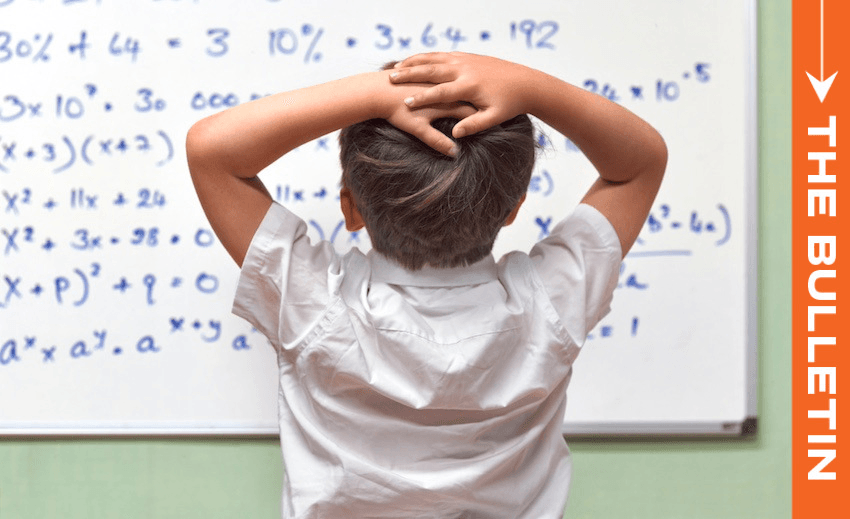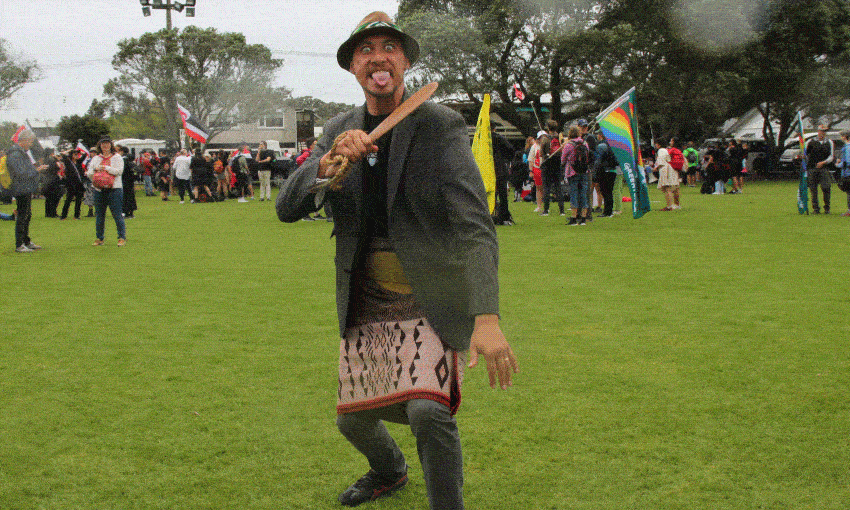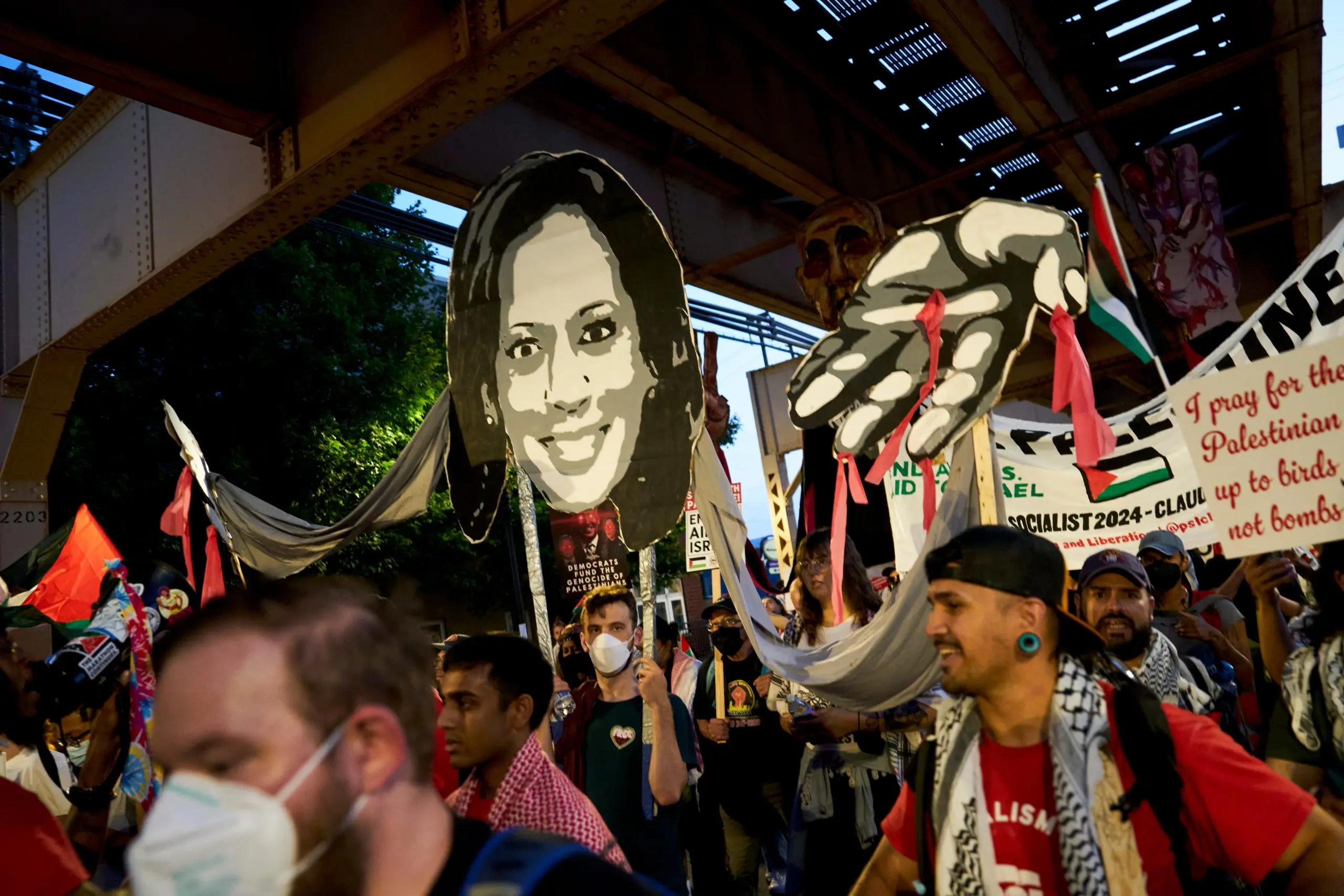The government is investing $20 million into improving maths teaching in primary schools, as studies show New Zealand kids are among the world’s least numerate, writes Catherine McGregor in today’s extract from The Bulletin.
To receive The Bulletin in full each weekday, sign up here.
‘A world-leading maths curriculum’
Primary school students will be assessed twice a year on their maths skills under the government’s new “Make It Count” action plan to address the mathematics crisis in New Zealand schools. Prime minister Chris Luxon announced details of the plan, which will also include extra training for teachers and support for students who are struggling, during a speech to the National Party Conference on Sunday. The changes will take effect from the start of the 2025 school year. Luxon described the lack of maths skills among NZ children as “a total system failure”, pointing to new data showing that only 22% of Year 8 students reached the expected benchmark for maths in 2023. Education minister Erica Stanford added that children will be given “a new world-leading, knowledge-rich maths curriculum based on the best from across the OECD like Singapore and Australia, adapted for New Zealand”.
Poor teaching partly to blame
The extra training for teachers comes after an Institute of Economic Research study earlier this year found a quarter of all new primary school teachers did not achieve NCEA Level 1 maths – in other words, they did not “pass at a basic level, the compulsory maths required of 15-year-olds in New Zealand”. There have been repeated calls for better teacher training in maths in recent years, and the government says the Teaching Council has now agreed to lift standards so that any prospective primary teacher must have achieved at least Level 2 in maths. However, as Venetia Sherson at RNZ reports, the problem has causes beyond the quality of teaching. Other issues include large class sizes and a widespread attitude in NZ that it’s socially acceptable to be poor at maths, educators say. Whatever the causes, there’s no doubt that the problem is acute. In a 2019 Trends in International Maths and Science study (TIMSS), New Zealand was the lowest performing English-speaking country in maths, with our nine-year-olds ranking an overall 39th out of 64 countries. The next TIMSS report is out in December.
Willis hints at Kiwibank privatisation
Also on the agenda at the conference was the proposed government sell-off of Kiwibank. Finance minister Nicola Willis said she “would like it to become a disruptive competitor that takes on the big Australian-owned banks” and it couldn’t do so without an injection of outside capital. “So let’s have a look at what’s possible. It’s time to explore all the options.” Her comments show the government is seriously considering one of the key recommendations in the Commerce Commission’s competition study into personal banking earlier this year. Opinion is split on whether privatisation – whether in full or in part – would be a good thing. Arguing on the pro side, The Spinoff’s Duncan Greive says a reason to be confident about a part-sale is that “the main name touted as a potential investor is actually a different branch of the state itself” – the NZ Super Fund, a former part-owner of the bank. For an opposing view, see Martien Lubberink’s piece in The Conversation, ‘Four reasons why selling part of Kiwibank could do more harm than good’.
Māori issues given short shrift
One big topic that didn’t get airtime this weekend was the government’s position on issues relating to, and affecting, Māori. In a conference focused on positive news and attacking the opposition, nobody wanted to touch the “great accumulation [of coalition policies] that is becoming far more problematic than any one issue in isolation”, as Claire Trevett put it in the Herald (paywalled). The immensely strained relationship between the government and Māori was demonstrated on Wednesday when Ngāpuhi leaders refused to take part in a pōwhiri for Luxon and his ministers, leaving an Iwi Chairs Forum hui as the government arrived. The iwi is leading a hikoi to parliament today in protest against the removal of Treaty obligations from Oranga Tamariki’s remit.





















Discussion about this post